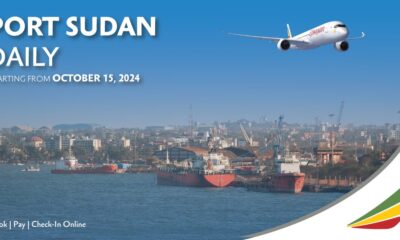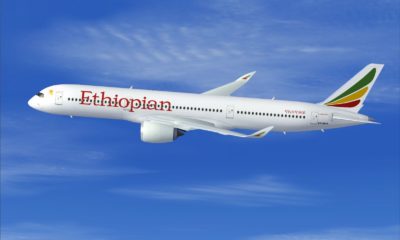The African Development Bank Group and the Government of Ethiopia have signed two separate grant agreements for new projects to boost youth employment and electricity trade between Ethiopia and Djibouti.
The grants fall under the Bank Group’s concessional lending window, the African Development Fund, and will go towards the Productivity Enhancement to Support Agro Industrial Parks and Youth Employment Project worth $47 million, and the $71 million Ethiopia-Djibouti Second Power Interconnection Project, which aims to boost electricity trade between Ethiopia and neighbouring Djibouti.
The industrial parks and youth project will see the development of irrigation and water management infrastructure around the Integrated Agro-Industrial Parks, offering opportunities for graduate “agri-preneurs” to establish agro-related, commercially viable businesses. The $102 million venture is being co-financed with the Arab Bank for Economic Development in Africa (BADEA), with a $5.25 million contribution by the Ethiopian government.
Under the scheme, 12,607 ha of irrigated land would be developed and about 3,000 youths will receive both agronomic/agriculture and business development training. Bank financing is expected to cover 4,607 ha and BADEA financing another 8,000 ha.
The irrigation infrastructure will strengthen water users’ associations; protect the water-shed areas around the irrigation schemes; go towards training farmers and youth agri-preneurs on soil and water conservation practices, agricultural production, value addition and marketing; and support established youth SMEs to access credit.
The project will be implemented over a five-year period (2021-2026) under the supervision of the Ministry of Water, Irrigation and Energy and the country’s Irrigation Development Commission.
The Ethiopia-Djibouti Second Power Interconnection Project follows an earlier Bank-financed power interconnection project between the two countries, and builds on its accrued benefits over the last 10 years. It will enable the construction of about 300 km of interconnector lines, 170 km of transmission lines to reinforce the network within Ethiopia, and new construction and expansion of substations in the two countries. In Djibouti, expected benefits include a 65% increase in customer connections and a sharp reduction in the use of thermal generation plants from 100% to around 16%. In Ethiopia, the project would lead to higher incomes from the power trade which over the last 10 years stood at over $275 million in revenue from power exports.
Upon completion, Ethiopia’s revenue from power exports will increase, while at the same time boosting Djibouti’s access to reliable, affordable, and clean electricity and lowering its greenhouse gas emissions.
“By enhancing economic ties through increased cross-border power trade and improved economic competitiveness, the project will contribute towards harnessing regional peace and stability and addressing regional fragility,” said Dr. Abdul Kamara, Deputy Director General, East Africa Regional Development and Business Delivery Office of the African Development Bank.
The Board of Directors of the African Development Bank Group approved funding of both projects on 7 July 2021. The grant agreements were signed on 21 July 2021 by Ethiopian Finance Minister Ahmed Shide, and Kamara.
The African Development Bank is a major player in Ethiopia’s development agenda and currently has operations valued at about $1.76 billion, covering basic services, energy, transport, water supply and sanitation, agriculture, governance, and the private sector.

 News3 weeks ago
News3 weeks ago
 Business3 weeks ago
Business3 weeks ago
 Technology3 weeks ago
Technology3 weeks ago
 Investment3 weeks ago
Investment3 weeks ago
 Banking Sector3 weeks ago
Banking Sector3 weeks ago
 Banking Sector3 weeks ago
Banking Sector3 weeks ago
 Appointments3 weeks ago
Appointments3 weeks ago
 Investment3 weeks ago
Investment3 weeks ago





























